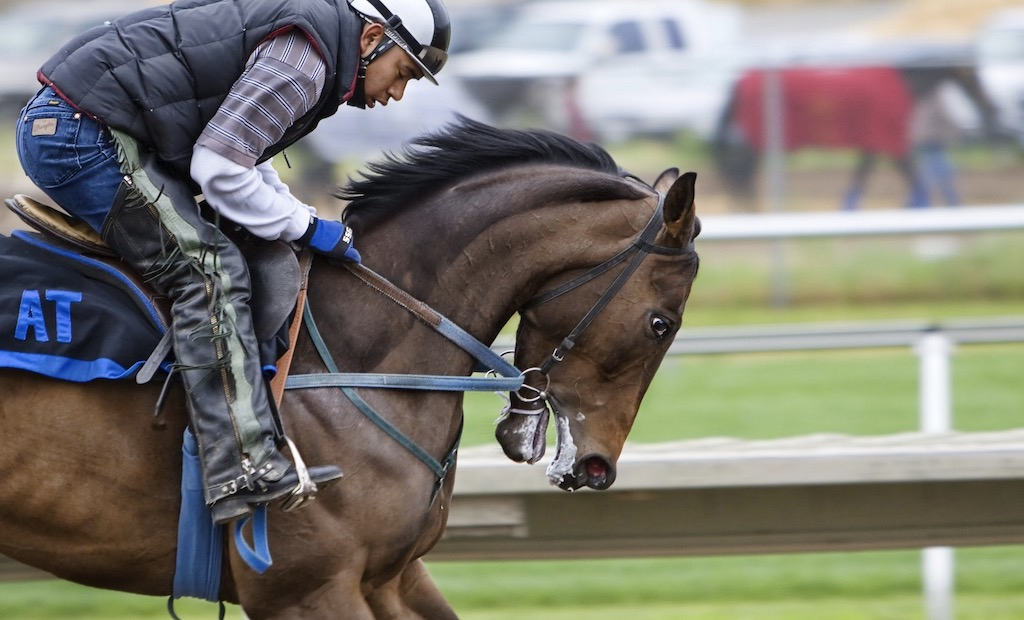Safety and administration of CBD oil for horses

Investing in raising and caring for a horse (or horses) takes a special passion and commitment to handle the challenges that the responsibilities bring, not to mention the expense that can accompany the upbringing. But equestrians find the experience rewarding above all else.
The relationship between these companions can last for decades with an extraordinary bond developing. Each is typically intensely protective of the other. So, when a parent notices behavioural changes indicating the potential for physical or emotional distress, it’s disheartening, to say the least.
In the not so distant past, the standard for vets was to prescribe medication for a majority of physical impairments or mental disorders including anxieties. Recently, equestrians have been introduced to using cannabidiol or CBD products for their ponies in an effort to reduce symptoms associated with pain and stress along with improving overall wellness as age progresses. Follow this link to learn about various research studies on medical cannabis for the species.
Safety and adverse effects of cannabidiol for horses
Before you begin treating an animal of any species with a substance, it’s essential to consult the animal’s regular vet. Holistic vets are typically limited in the dialogue they can have with patients regarding cannabidiol. Generally, the patient needs to make an inquiry in order to start the conversation. From that point, you can benefit from their knowledge, suggestions and recommendations in order to make more informed decisions regarding product purchases.
Research is also an important component in ensuring the safety of your pony. It’s vital to invest in products of the highest quality that have been lab-tested by third-parties comprising pure CBD. If marijuana additives make their way into the product, especially THC, it can be detrimental for the horse. You need to ensure there is a Certificate of Analysis indicating the level of this element at 0.3% or lower.
Products that are designed for humans should only be given to humans. There are specially created products for specific species including horses, visit this page. Human items have the potential to consist of additives that may not be suitable for animals.
If your equine were to ingest too much of a product or perhaps a lesser quality item, there might be resultant side effects. These can include signs of depression, lethargy, irritation or the potential for other abnormal behavioural changes after an administration of the substance. That’s why it’s vital to speak your vet and follow their guidance.
Administration of products for equine
There are a wide variety of products on the market for humans and animals in many forms to make administration easy with no stress or frustration for anyone, especially the pet.
While there are several choices for horses, they are not quite the same as those available for humans. And it’s crucial to ensure that you use those specifically made for their species as opposed to the human variety.
Claims recommend the most accurate way for monitoring how much cannabidiol a horse ingests is through the use of CBD oils. These are placed under the animal’s tongue or mixed in with their feed daily.
If you find it challenging to administer the oil, CBD pellets have been developed to mix in with grains. Some manufacturers have even created premade CBD equine treats for the animal’s pleasure in flavour and taste.
There is the benefit of salves also for horses who may suffer from discomfort due to skin disorders, joint pain or muscle aches or another physical ailment. These are rubbed onto the affected area directly in an effort to get relief in the source spot.
Though a dose is going to be substantially larger for this species compared to a much smaller variety like a dog or cat, you will still begin with the minimal dose for the specific size animal, and slowly work up until the desired effect is achieved. The vet is a knowledgeable resource when attempting to dose safely the first time. The medical provider can also monitor and advise when it is best to bump it up. For guidelines on the safety of CBD for horses go to https://thehorse.com/167382/hemp-for-horses-safety-and-uses/ .
For the overall safety and wellness of your horse, it’s never a good idea to begin any course of treatment without being informed.
The editorial unit
The material contained in this article is of the nature of general comment only and does not give advice on any particular matter. Recipients should not act on the basis of this article’s information without taking appropriate professional advice.
























Facebook
Twitter
Instagram
YouTube
RSS